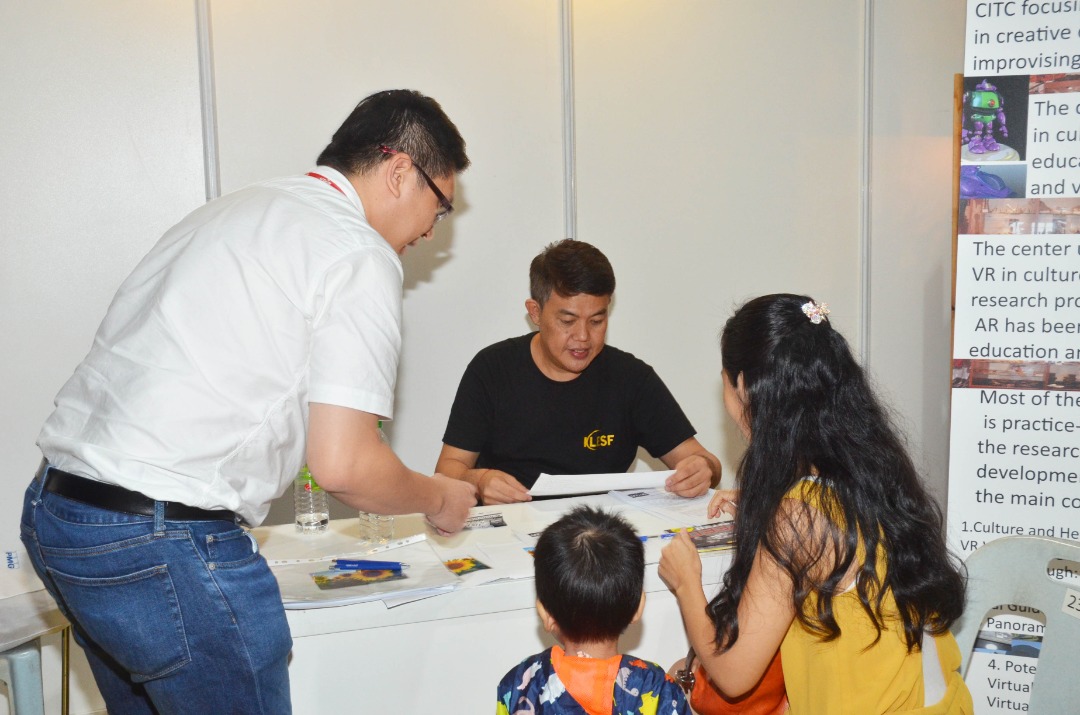
![]()
Education nowadays is becoming increasingly digitised and being driven by technology innovations. Technologies such as augmented reality (AR) can serve many purposes in education. It makes learning more engaging and fun, which could help students easily acquire and process information.
With the
acknowledgement of the potential of AR in the education field, UTAR Centre
for Immersive Technology and Creativity (CITC)
collaborated with the Centre for Learning and Teaching (CLT) to promote and
introduce AR technology to pre-school education.
.jpg)
The Sunflower app allows users to view the growing process of the plant
The team
created an application that allows its users to view the
growing process of a plant by scanning a printed sunflower. By simply
scanning the printed sunflower using the app, the users will be able to
watch a video that shows the growth process of the flower, starting from the
seed in the soil until it becomes a flower. The team also came up with
another idea for growing chilli plants, bringing a completely different
learning experience and opportunity for the young generation or more
precisely the urban kids who have no experience in planting.
“The Sunflower and Chili plant” is the first developed AR prototype by CITC to conduct empirical research. This study proposes a comprehensive conceptual model of mobile AR for education where it offers the components of an enjoyable learning experience at the Kuala Lumpur Engineering Science Fair (KLESF).
The overall idea of the practice is to introduce a solution for future education. Technology can help in the process of exploration and discovery. For the fun of the learning process, AR can assist the young generation to be more interactive in the learning process besides enabling active participation. This is the new learning experience that the two centres hope to bring to society.
CITC is a
centre focusing on immersive technology, virtual reality, AR and creative
concept development. The aim of the centre is to bring the technologies to
assist in the development of education, tourism, heritage, and culture
preservation. On the other hand, CLT attempts to do social impact
evaluation, for instance, the acceptance level of the society toward the
immersive technology. Both centres have been working closely to bring the
idea of immersive technology for future education since the KLESF 2017.
.jpg)
Centre for Immersive Technology and Creativity
Chairperson Dr Aloysius Yapp (second from left) and
his team presented the app at KLESF 2019
(photo taken in 2019)
.jpg)

Dr Aloysius Yapp (centre) explaining AR technology
to the attendees at KLESF 2019
(photo taken in 2019)
Wholly owned by UTAR Education Foundation (200201010564(578227-M)) LEGAL STATEMENT TERM OF USAGE PRIVACY NOTICE